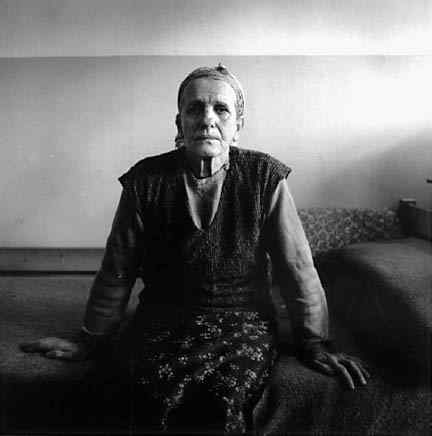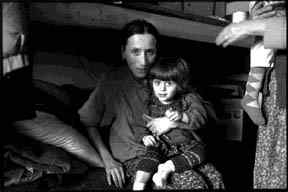




 |
 |
 |
 |
 |
|
| Contents Forward Backwards |
|
"The nicest place to be is your home. But the Serbs expelled me and killed the members of my family. How can I trust them? How can I go back? I am so afraid." "We are human beings and don't deserve to be treated like dogs." "No one has ever listened to me. Please tell people my story." Everyone we met in the Tetovo Collective Center in Zenica put so much faith in us to tell their story -- they believed this would save them. Some lost sons, brothers, or all members of their family. Some saw their parents killed before their eyes. The women have no opportunity for work. Their husbands are missing, some imprisoned. Most are presumed dead. One refugee mother hoping we could help asked us, "Where will my kids finish school? This is not the end of the school year. I am pregnant. Who will provide maternity care? Nobody. What kind of conditions are these for newborn children?" There are 10 men in this center -- either disabled or elderly. "Why have we been fighting for this country? For this?" Most Bosnian males were in the army or deported against their will. Smoking provides solace; many refugees started during the war. In February 1993, the supplies of tobacco became so rare that lines of Sarajevans stretched for blocks to purchase a carton of cigarettes. |
  |